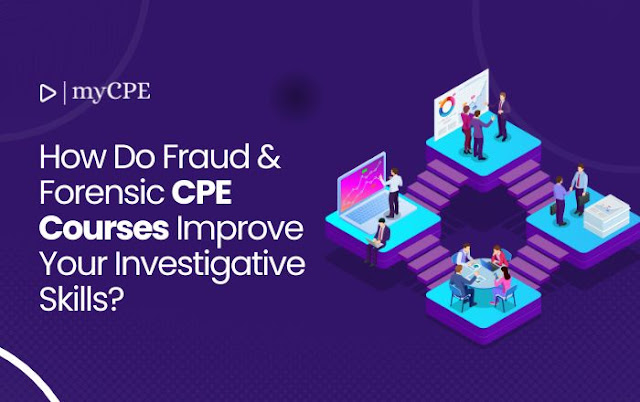Why should A CPA consider becoming An Enrolled Agent?
In today’s competitive financial landscape, accountants and tax professionals constantly seek new avenues for career growth and advancement. For Certified Public Accountants (CPAs), one such opportunity lies in becoming an Enrolled Agent (EA). While CPAs possess comprehensive knowledge across a variety of financial disciplines, EAs hold a specialized certification recognized by the IRS for their expertise in tax matters. But why should a CPA consider this additional credential? Let’s explore the reasons and benefits that make this path worth considering.
Who Are CPAs?
Certified Public Accountants (CPAs) are licensed professionals responsible for maintaining accurate financial records, performing audits, and providing financial consulting. CPAs have undergone rigorous educational and licensing processes, making them highly respected in the finance and accounting world.
Job Tasks of CPAs
CPAs play a versatile role within their organizations. Their tasks typically include:
- Auditing financial records and ensuring compliance with laws and regulations.
- Preparing and filing tax returns for individuals and businesses.
- Advising clients on tax strategies and financial planning.
- Managing and organizing financial statements and records.
- Conducting risk analysis and internal audits.
These tasks make CPAs essential for both businesses and individuals, as they ensure financial accuracy and transparency. However, CPAs' scope can extend even further by becoming Enrolled Agents.
Opportunities for CPAs
As a CPA, numerous career opportunities are available, such as:
- Working in public accounting firms, corporate finance departments, and government agencies.
- Climbing the corporate ladder to CFO or financial manager roles.
- Offering independent consulting services to clients.
While these are excellent career opportunities, some CPAs find that adding an EA credential can provide a more tax-focused career path, offering unique advantages and opening additional doors.
Who Are Enrolled Agents?
Enrolled Agents (EAs) are tax professionals licensed by the IRS. Unlike CPAs, who have a broad skill set across multiple areas, EAs specialize specifically in tax issues. They are the only professionals with federal authority to represent taxpayers in all matters before the IRS.
Job Tasks of EAs
EAs handle a range of tax-related responsibilities, including:
- Preparing and filing tax returns for individuals, businesses, and other entities.
- Representing clients in audits, collections, and appeals before the IRS.
- Advising clients on tax planning and strategies.
- Handling more complex tax issues like international taxation and estate taxes.
Because they focus solely on tax matters, EAs are considered experts in this domain and are often called upon for specific IRS-related cases.
Career Opportunities for EAs
Enrolled Agents have the flexibility to work independently or for various organizations. Career opportunities for EAs include:
- Tax consultancy firms
- Government agencies like the IRS
- Accounting and financial advisory firms
- Corporate tax departments
The demand for EAs is high, particularly during tax season, and as businesses seek to remain compliant with IRS regulations.
Advantages of Becoming an EA Over a CPA
Why should a CPA consider the EA credential? Here are a few compelling reasons:
1. Specialized Tax Authority
EAs have a distinct edge when it comes to tax expertise. While CPAs have extensive knowledge in various accounting disciplines, EAs are recognized as tax specialists by the IRS. This makes EAs a go-to for individuals and businesses with complex tax needs.
2. Federal Representation Rights
EAs have the unique ability to represent clients before the IRS in all matters, including collections, audits, and appeals. While CPAs can also represent clients, EAs are specifically licensed by the federal government for this purpose, making them particularly valuable in tax representation cases.
3. Flexibility and Independence
Many EAs work independently, allowing them to set their hours and manage their own clientele. For CPAs looking for a more flexible or entrepreneurial path, obtaining an EA license could provide the freedom to establish their own tax consultancy.
4. Year-Round Demand
While CPAs are often busiest during specific times of the year, like tax season or fiscal year-end audits, EAs experience steady demand year-round due to their specialized tax services. This stability can provide CPAs with additional revenue streams, even during traditionally slower periods.
How to Become an Enrolled Agent
To become an EA, candidates must pass the EA Exam, also known as the Special Enrollment Examination (SEE). This three-part exam covers individual and business tax laws, as well as IRS procedures and ethics. Many organizations, including MY-CPE, offer an EA Exam Prep Course to help candidates prepare for the exam. Once certified, EAs must complete continuing education and adhere to ethical standards set by the IRS to maintain their license.
Why Become an EA?
Adding the EA credential to a CPA’s qualifications can enhance career prospects significantly. It not only increases earning potential but also broadens the scope of services offered to clients. Moreover, in a rapidly evolving tax landscape, having both CPA and EA credentials demonstrates a strong commitment to professional excellence and tax expertise.
Conclusion
For CPAs looking to expand their professional opportunities, becoming an Enrolled Agent can be a strategic move. By combining the comprehensive accounting knowledge of a CPA with the specialized tax authority of an EA, professionals can offer a unique skill set that meets clients' diverse financial and tax-related needs. If you're ready to take the next step, consider enrolling in an EA Exam Prep Course and start your journey towards becoming an Enrolled Agent today.



Comments
Post a Comment